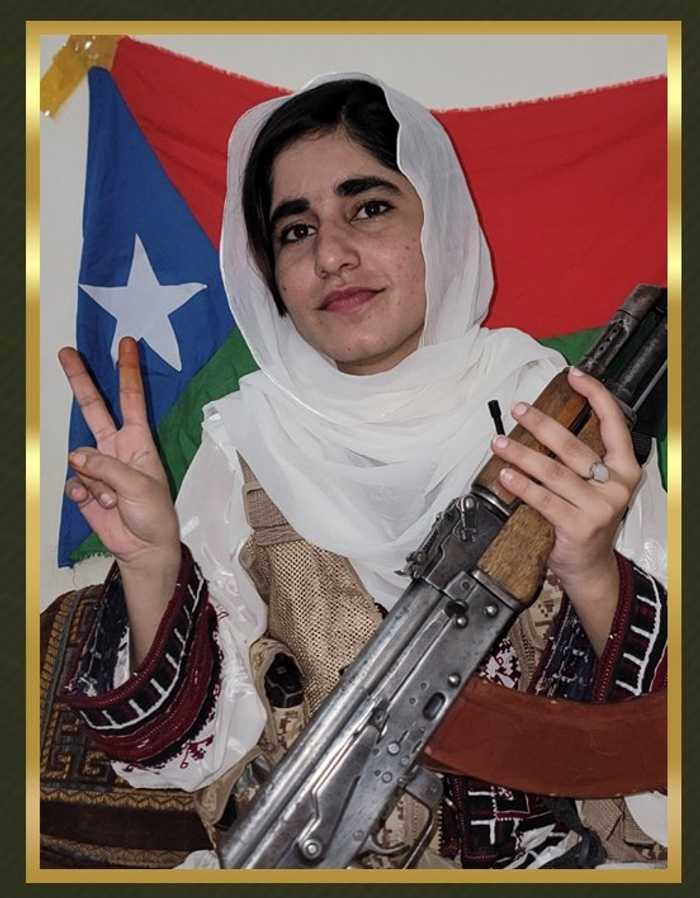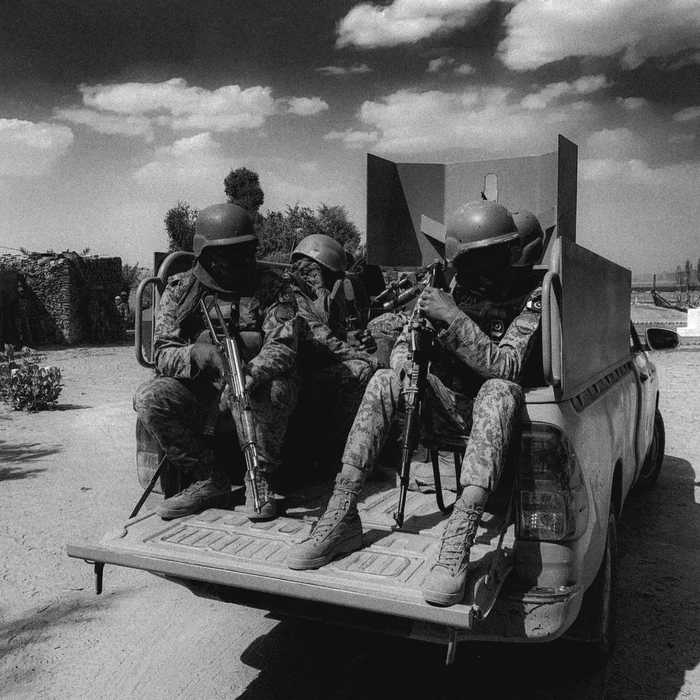Published 11:59 IST, September 4th 2024
How BLA Relayed their Deadly Message to Pakistan and China Under Operation Herof
In a meticulously executed operation, the Baloch Liberation Army (BLA) launched "Operation Herof (Dark Windy Storm)" on Pakistan's Bela military camp.
- Defence
- 4 min read
Bela, Balochistan- In a meticulously planned and coordinated series of attacks, the Baloch Liberation Army (BLA) launched “Operation Herof (Dark Windy Storm)” on Pakistan’s Bela military camp. The operation, which began with a devastating vehicle-borne improvised explosive device (VBIED) attack carried out by female fidayeen Mahal Baloch, also known as Zilan Kurd, along with another fidayee, Rizwan Baloch, has resulted in significant casualties among Pakistan military personnel.
The initial attack involved the detonation of VBIEDs at the entrance of the Bela camp, paving the way for infiltration by BLA’s Majeed Brigade. Led by Operational Commander Ghous Bakhsh Simalani, known as Talib, the BLA forces managed to seize control of the camp for 20 hours, killing 68 military personnel and injuring dozens more. This deadly assault marked the commencement of a larger, multi-faceted operation that saw coordinated attacks across Balochistan, with the BLA targeting key military and police installations, blockading highways, and taking hostages.
A New Phase of BLA Operations: The Role of Female Fighters
This operation marks a significant shift in the BLA's tactics, particularly in its recruitment and deployment of female fighters. The use of women in suicide operations is not entirely new for the BLA; however, Operation Herof underscores an evolving strategy where female fidayeen play a pivotal role. Mahal Baloch’s involvement echoes previous incidents, such as the 2022 attack by Shari Baloch on Karachi University’s Confucius Center, and the 2023 suicide bombing by Sumaiya Qalandrani Baloch against a military convoy in Turbat district.

These operations highlight the BLA’s increasing reliance on female fighters, who bring an element of surprise and demonstrate the group’s commitment to involving women in its armed struggle against the Pakistani state. The involvement of former Pakistan military personnel, such as Fidayee Sangat Tayyab, alias Lala, further indicates the BLA’s strategy of recruiting individuals familiar with Pakistani military protocols, enhancing their operational effectiveness.
BLA's Strategic Offensive: Expanding the Battlefield
The operation was not limited to the Bela camp. BLA’s Fatah Squad Special Tactical Operations Squad (STOS) blockaded several highways, effectively hampering the movement of Pakistani military reinforcements. A military convoy was ambushed on the Mand-Turbat road, resulting in the deaths of five soldiers, while another convoy was attacked near the Garari toll plaza in Kalat, claiming the lives of 15 soldiers. In Bolan, BLA fighters attacked 16 Frontier Corps personnel, seizing their weapons and destroying railway tracks to prevent reinforcements from reaching the affected areas.
-1725430883017.webp)
BLA spokesperson Jeeyand Baloch stated that the operation aimed to send a clear message to both Pakistan and China to withdraw from Balochistan. The group claimed responsibility for the deaths of 68 military personnel and the temporary capture of Bela camp, while also taking 22 military, police, and Levies personnel as hostages.
Pakistan's Response and BLA's Counterclaims
In response, Pakistan’s Inter-Services Public Relations (ISPR) condemned the attacks as acts of terrorism, accusing the BLA of targeting innocent civilians in Musakhail, Kalat, and Labela districts. ISPR's statement claimed that these attacks were intended to disrupt the peaceful environment and development of Balochistan.

However, the BLA refuted these allegations, insisting that their targets were exclusively Pakistani military personnel and that any civilians involved were undercover members of the military’s death squads. The BLA also released a list of their martyrs from Operation Herof, paying tribute to fighters such as Muhammad Baloch (Mirak), Sangat Fazal Gul Zehri (Shavez), Sangat Tayyab (Lala), Sangat Junaid Zehri (Kami), Muhammad Asif Nechari (Naveed), and Muhammad Bakhsh Simalani (Khalid), who died in the line of duty.
Escalating Tensions and the China Angle
The BLA's operations are deeply rooted in the broader context of Balochistan's resistance against perceived Pakistani occupation and exploitation of their resources. The increasing Chinese presence in the region, particularly through the China-Pakistan Economic Corridor (CPEC), has exacerbated tensions, leading to a surge in insurgent activities targeting Chinese nationals and interests.
-1725431278535.webp)
In response to the growing insurgency, Pakistan launched Operation Azm-e-Istehkam in June 2024, aiming to suppress the Baloch freedom movement. However, this operation, approved by Prime Minister Shehbaz Sharif, has been met with protests in Khyber Pakhtunkhwa and scepticism among Baloch civilians, who fear further displacement and violence under the guise of counter-terrorism efforts.
The Baloch struggle for autonomy, intensified by the presence of foreign powers, especially China, is unlikely to subside, raising concerns about the future stability of Balochistan and Pakistan as a whole.
Updated 23:10 IST, September 5th 2024